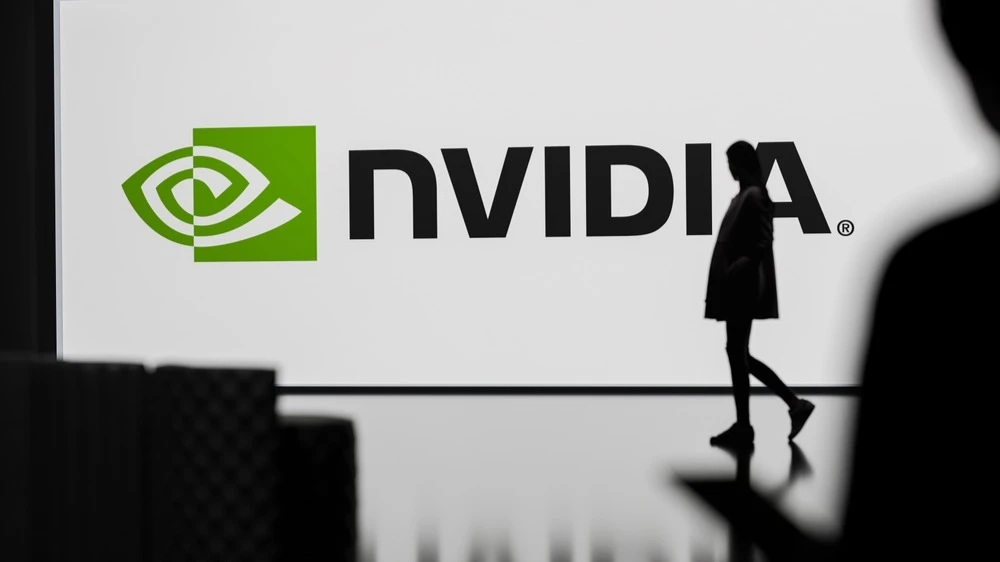"More important than the Fed": what does the market expect from Nvidia's quarterly report?
Traders are predicting Nvidia shares will fall or rise 6% after the release of its quarterly results

The market expects that after the publication of Nvidia's quarterly report on August 27, its capitalization may change by $260 billion. At the same time, as some analysts emphasize, more important than the movement of shares of this company will be the effect that the results of the chipmaker may have on the entire market. Skeptics, however, urge not to rule out the impossible - disappointment with Nvidia's report.
Details
The market is betting on sharp fluctuations in Nvidia shares after its quarterly report, which will be published after the close of trading on August 27. According to data from analytical company ORATS, options traders expect that quotes of the chipmaker could move 6% in one direction or the other, reports Reuters. By comparison, over the past 12 quarters, the market has plotted average stock movements of 7.7% following Nvidia's reports, with actual swings of 7.6%.
In recent days, some of the most actively traded options have been call options looking for Nvidia shares to rise to $190 and $200, according to Cboe Global Markets data cited by The Wall Street Journal. That equates to a 4.5% or 10% increase in the company's value relative to its closing level on Aug. 26.
Since the beginning of the year, Nvidia's shares have gained more than 35% amid the ongoing hype around artificial intelligence. As a result, it became the first publicly traded company in the world to reach a market value of $4 trillion. "It's been an amazing rally. Now it's Goldilocks time for Nvidia," ORATS founder Matt Amberson said in a Reuters statement, meaning everything is perfectly balanced for its capitalization growth. Investors are now waiting for quarterly results to see if the $4 trillion valuation is justified, Reuters adds. Additionally, the recent revenue sharing deal with the U.S. government and its potential impact on the company's outlook is drawing attention, the publication notes.
Wall Street's consensus forecast calls for the chipmaker to post adjusted earnings of $1.01 per share on revenue of $45.94 billion for the second quarter, Seeking Alpha writes.
Why the Nvidia report is important
Barron's notes that the continuation of the rally in the U.S. stock market depends largely on Nvidia's second quarter report, which may turn out to be "even more important than the recent reversal of Fed Chairman Jerome Powell's turn toward lowering rates". Investors remain wary of accelerating inflation amid a slowing economy, the publication adds. Low rates usually support stocks, but if rates are cut because the economy is slowing, corporate earnings could deteriorate, Barron's explains.
Weak economic dynamics may call into question the sustainability of growth of mega-capitalization companies, which have provided the bulk of the market's upswing this year, admits the head of U.S. equity strategy at RBC Capital Markets, Lori Calvasina. For analysts to start improving their earnings estimates for tech giants, Wall Street needs to see "a significant upward revision to GDP forecasts," she says. Otherwise - it "poses a challenge for the continued growth of the broad U.S. market and especially for trades in large growth stocks and technology leaders."
Against this background, Nvidia's report takes on a special significance: about 40% of its revenue comes from tech giants like Microsoft, Amazon, Meta and Alphabet. Synovus analyst Dan Morgan estimates that about 60% of the multi-billion dollar capital expenditures of these companies are allocated to AI.
Nvidia's share of the AI chip market is as high as 80%, and its market capitalization represents about 8% of the weight in the entire S&P 500 index. While the "AI play" has so far supported the U.S. stock market, last week investors began actively taking profits in tech stocks: skepticism around AI has increased again, notes RBC's Calvasina. So the forecast that Nvidia is expected to present when it publishes its report becomes a key benchmark for Wall Street.
"The effect around Nvidia may prove more interesting than the stock movement itself," says Chris Murphy, co-head of derivatives strategy at Susquehanna. He says speculative securities from the AI sector have sagged, but Nvidia is back close to an all-time high. If the report proves stronger than forecasts, that could support riskier AI stocks as well.
High stakes
In anticipation of the report, several analysts raised the target price of the chipmaker's shares. Now, the average Wall Street target suggests that the company's stock has a potential upside of almost 8%. The vast majority of analysts - 58 out of 65 - advise investors to buy the company's shares (Buy and Overweight ratings).
With expectations currently high, Nvidia stock has little room for error, Jacob Falkenskjon, head of global investment strategy at Saxo Bank, noted in Barron's outline. He emphasized that for all the company's dominance, its vulnerability lies in how quickly competitors or regulators are able to change the rules of the game. If growth slows or margins are weaker than forecast, the fall could be steep.
"If there is some negative surprise, it could have a disproportionate impact," Brian Mulberry, a portfolio manager at Zacks Investment Management, also told Bloomberg. - But the likelihood of Nvidia not meeting expectations is extremely Ma."
This article was AI-translated and verified by a human editor
